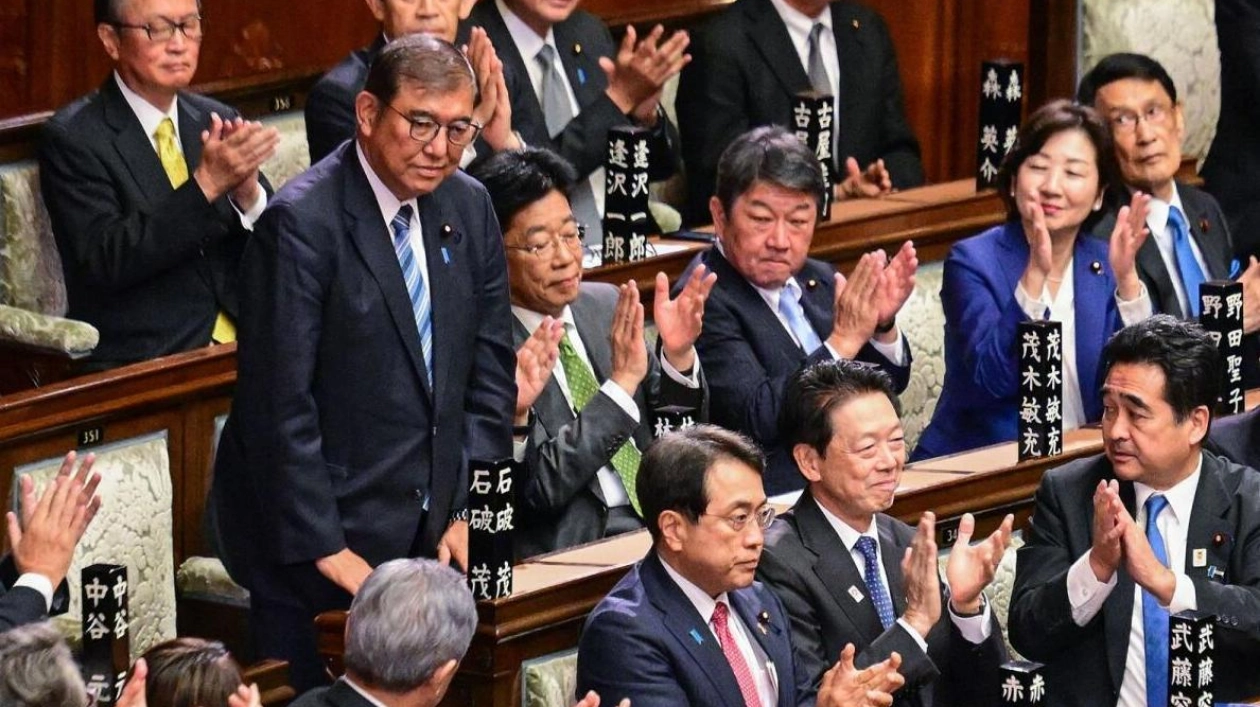Lawmakers in Japan applauded as Prime Minister Shigeru Ishiba (standing L) was reappointed as leader following a second round of parliamentary voting to nominate a prime minister, which took place after the October 27 general election. This special session of parliament was held in Tokyo on Monday. — AFP
On Monday, Japanese lawmakers voted for Prime Minister Shigeru Ishiba to continue in his role, despite his scandal-affected coalition losing its parliamentary majority in the recent lower house election. Ishiba, who called the snap poll shortly after taking office on October 1, now faces the challenge of leading a fragile minority government. This comes as protectionist Donald Trump returns to office in the United States, tensions rise with rivals China and North Korea, and domestic pressure increases to control the cost of living.
Ishiba's Liberal Democratic Party and its coalition partner, Komeito, secured the largest bloc of seats in the election but lost the majority they had held since 2012. This leaves Ishiba dependent on small opposition parties to pass his policy agenda. Highlighting the government's fragility, Monday's parliamentary vote, broadcast on television, went to a runoff for the first time in 30 years, as no candidate could secure majority support in the first round. However, Ishiba eventually prevailed as expected, receiving 221 votes, well ahead of his nearest challenger, former Prime Minister Yoshihiko Noda, but still falling short of a majority in the 465-seat lower house.
Japan is set to hold elections next year for the less powerful upper house, where the ruling coalition's slim majority could also be at risk if Ishiba cannot restore public trust shaken by a scandal involving unrecorded donations to lawmakers. His immediate challenge is to compile a supplementary budget for the fiscal year ending in March, under pressure from voters and opposition parties to increase spending on welfare and take measures to offset rising prices. For approval, he needs the support of at least one opposition party, most likely the Democratic Party for the People (DPP) headed by Yuichiro Tamaki. Although Tamaki has held cooperation talks with Ishiba, DPP lawmakers did not vote for Ishiba to remain as prime minister on Friday. Tamaki is also in a precarious position after admitting to an extramarital affair revealed in a tabloid magazine.
With his premiership confirmed, Ishiba must now prepare for a series of international engagements, including the Group of 20 big economies summit in Brazil on November 18 and 19. He is also attempting to arrange a stopover in the United States on the way to or from that gathering to meet Trump. Some Japanese officials fear that Trump might impose protectionist trade measures on Tokyo again and demand higher payments for the cost of stationing U.S. forces there. These issues were largely managed during Trump's first term, from 2017 to 2021, due to the close relationship between the president and Japan's then-premier, Shinzo Abe—a bond Ishiba seems eager to re-establish.
Source link: https://www.khaleejtimes.com






